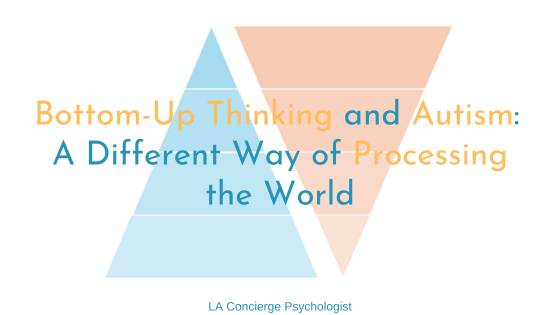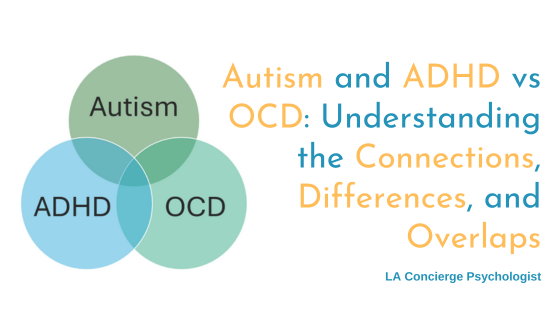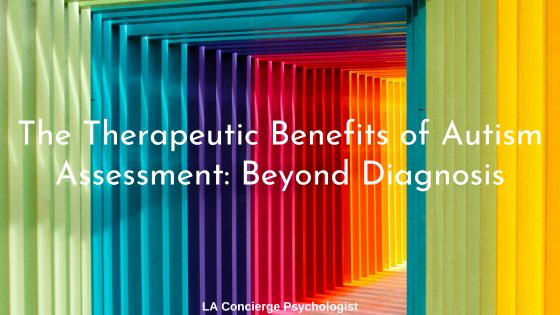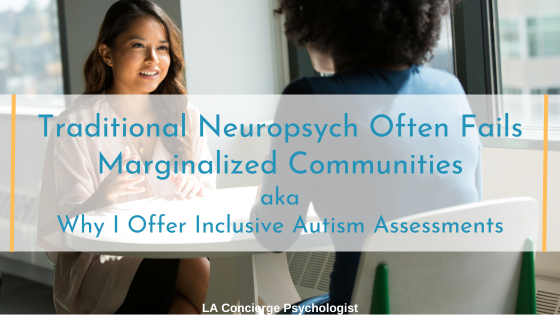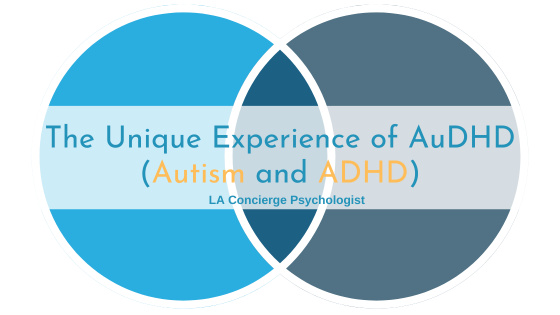Does Your Autism Make You Feel Like An Outsider?
Do you feel disconnected from your friends and loved ones? Sometimes autism makes it feel difficult to communicate with others, causing you to feel lonely or misunderstood. Maybe you’ve been rejected or ignored so many times in the past that you hesitate to open up to people or form new relationships. You may feel like making new friends is a hopeless endeavor.
Have your relationships been a source of anxiety and uncertainty? Friends and acquaintances may act strangely or get upset with you for no apparent reason, leaving you bewildered and discouraged. You might also be afraid that others won’t accept you for who you are. You feel like you have to hide parts of yourself because you can’t allow people to see you overwhelmed or engaged in autistic ways of self-soothing. As a result, you never feel at ease, sometimes even with your loved ones or friends.
Do you feel like modern culture has set you up for failure? Societal structures designed to cater to neurotypical people may overstimulate and drain you. You may feel pressured to adjust to these systems in an effort to fit in or meet other people’s expectations, but that has only left you feeling more anxious, fatigued, or depressed.

If you’ve received an autism diagnosis or you’re starting to recognize signs of autism, you may be looking for a way to “fix” yourself. Convinced that something is wrong with you, perhaps you’re searching for an autism “cure.” Fortunately, it’s possible to leverage your strengths, improve your relationships, and level the playing field—without changing who you are.
Autism in Adults is as Difficult to Diagnose as It is to Live With
Autistic people have a range of presentations. While one in 59 children meets the standard diagnostic criteria, kids with less common presentations of autism often go through childhood without being diagnosed. The diagnostic measures for autism are based on how it shows up in young boys, so autism is more difficult to detect in adults and young girls. Once these undiagnosed children reach adulthood, they often feel like they have little choice but to cope with their conditions on their own.
Unfortunately, the coping skills that help them survive their childhood and adolescence may be less effective in complex situations as they get older. Because of a cultural lack of understanding regarding neurodiversity, autistic people often face biased attitudes that make them feel broken, deficient, and “less than” their neurotypical peers.
Autistic adults often reach a point at which they become too exhausted or overwhelmed to continue successfully masking as neurotypical. In response, you might seek a formal adult autism diagnosis and treatment for what you view as a mental illness. But by working with a therapist who understands what autism is (and what it is not), you can recognize autism as a form of naturally occurring diversity instead of something that needs to be cured.
Autism Therapy Can Help You Accept and Celebrate Who You Are

Autism is viewed from a variety of perspectives. The medical model assumes that a person on the spectrum is broken or incomplete and focuses on “fixing” them or making them “whole.” The psychological model similarly views autism as a disorder that requires treatment. Both represent an ableist perspective of autism— a discriminatory view that autistic people are somehow inferior to neurotypical people.
While the ableist perspective has dominated the conversation about autism for the past 30-40 years, a less prejudiced and healthier perspective has recently emerged. Similar to the way therapists embrace and celebrate cultural diversity, neurodivergent-affirmative therapists like those at LA Concierge Psychologist posit that neurological variances are not defects—just differences—which do not need to be fixed. This view allows us to offer a level of understanding and compassion that is otherwise lacking. With autism counseling, you can make the ableism that’s been causing your suffering more visible, giving you something concrete against which you can push back.
We don’t provide autism “treatment” in the sense of trying to change or fix you. We will accept you for who you are, including how your brain naturally works. In therapy, we’ll tailor our style to work with your individual needs. We’ll help you tap into your innate strengths and the knowledge you already possess about how you work best and use that information to help you reach your goals.
To alleviate some of your immediate distress, we’ll discuss the foundations of emotional well-being, including sleep, nutrition, physical activity, and self-care. We will bring in mindfulness and grounding techniques, our go-to strategies for managing anxiety and regulating emotions, and figure out which techniques work best for you. And we will encourage you to keep using any coping skills that are already working for you (such as pacing or other forms of stimming).
 If you’re interested in exploring your underlying issues, we can take a deeper dive into how autism works vs. how it is perceived by society. We can also explore why certain situations cause you distress. Maybe we’ll discover certain patterns of thinking that leave you feeling frustrated or ashamed. And, if you want, we can “translate” what’s happening in the neurotypical world, allowing you to navigate it more easily and with less effort.
If you’re interested in exploring your underlying issues, we can take a deeper dive into how autism works vs. how it is perceived by society. We can also explore why certain situations cause you distress. Maybe we’ll discover certain patterns of thinking that leave you feeling frustrated or ashamed. And, if you want, we can “translate” what’s happening in the neurotypical world, allowing you to navigate it more easily and with less effort.
If you’re like many of our clients, you’re exerting a lot of energy camouflaging or masking—you’re trying to accommodate others’ expectations and communication styles in an effort to appear more neurotypical. Autism counseling provides a place for you to relax and let down your guard without fear of being judged or misunderstood. It will also encourage you to stop fixating on areas where you fall short. Rather than internalizing ableist messages, we will encourage you to let go of them and focus on ways your environment can accommodate you, instead of the other way around.
In addition to individual autism therapy, we offer a variety of coaching and consultation services tailored to the specific needs of autistic adults, so we can support you with whatever goals you may have. These include
- Job and Career Coaching
- Interview Prep
- Social Skills and Friendship Coaching (including PEERS certified social skills)
- Dating and Relationship Coaching
- Self-Advocacy Coaching (including work and school)
- Gap Year Consultation
- College Transition Consultation

The welcoming and supportive setting of therapy will help you to view your autism as something unique to be embraced and celebrated, not a disease to be cured. This attitude can help you assert yourself and voice your needs in every area of your life, including your career, friendships, and romantic relationships. The self-esteem, emotional regulation skills, and coping techniques you develop in therapy can help you move through the world more smoothly while staying true to who you are.
As You Consider Adult Autism Treatment, You May Wonder. . .
Do I really need therapy? I’m not sure if I even have autism.
You may have lived with feelings of fatigue, overwhelm, and isolation for so long that you can’t imagine another way of living. Autism is also notoriously difficult to diagnose, so you may need more than basic research or an online autism test to get a conclusive diagnosis. As your therapist, we will conduct multiple interviews with you to discuss your current challenges and developmental history in order to provide you with a definitive answer.
I’ve tried therapy before, and it didn’t help. How will this be any different?
Many therapists are not very familiar with adult autism, but autism treatment is our specialty. By working with a specialist, you give yourself access to someone who truly understands how autism works and how to most effectively work with it. In our practice, we draw from many different techniques including cognitive behavioral therapy (CBT), dialectical behavioral therapy (DBT), acceptance and commitment therapy (ACT), attachment theory, and positive psychology. We will focus on whatever approach works best for you.
We provide support to our autistic clients via online therapy. Working from a comfortable setting can help reduce sensory barriers, the anxiety of driving somewhere new, and allow you to more fully and confidently engage in the therapeutic process.
I’m not sure I can afford autism therapy.

Your happiness and increasing emotional stability will be worth the investment. Even if you’re not sure if you need therapy yet, now may actually be the best time to consider it. If you wait until your situation escalates before going to therapy, it could take a toll on your career, relationships, general well-being, and finances. By deciding to invest in yourself now, you can avoid prolonging your pain or reaching crisis mode.
Leverage Your Strengths And Set Yourself Up For Success
No matter how difficult things seem right now, we have the tools, compassion, and understanding to help you find a way forward. As autism specialists, we offer teletherapy throughout California. Visit our contact page to send us a message or to set up a free, 20-minute phone consultation using the buttons below.


